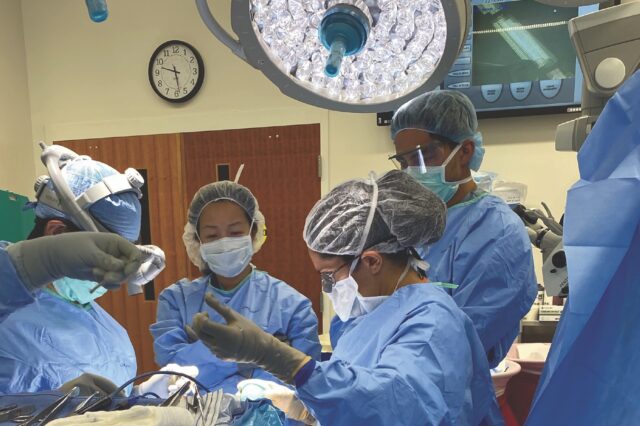UF Health Comprehensive Skull Base Surgery Center
Address
Gainesville, Florida 32608
Phone Numbers
Hours of Operation
See full hours
The Vital and Complex Cranial Floor
The UF Health Comprehensive Skull Base Surgery Center is made up of expert physicians from many different specialties who work together to diagnose, treat and research skull-based conditions. This multidisciplinary team includes numerous surgical and nonsurgical specialists, including neurosurgeons, otolaryngologists, neuroendocrinologists, neuro-oncologists and radiation oncologists. The Center also works with various support services, including neuroradiology, neuropathology, neuro-ophthalmology, neuropsychology and audiology.


We are proud to care for patients at UF Health Shands Hospital, ranked as one of the nation's top hospitals for neurology and neurosurgery by U.S. News & World Report.
We believe that the best patient care stems from a multidisciplinary approach that coordinates patient care and involves a personalized team of specialists to address each patient’s specific needs. The multidisciplinary team makes use of UF Health’s leading-edge equipment, technology and medical expertise to deliver nationally recognized outcomes.
The skull base is the bottom portion of the skull and is significantly more complex than the front, back and sides of the skull. The intricate nature of the skull base is derived from the fact that all nerves in the body carrying signals to and from the brain, as well as the large vessels carrying blood to and from the brain, pass through the skull base.
- Learn more about the conditions treated and procedures conducted at the Skull Base Surgery Center.
- For physicians wishing to schedule a consultation for their patients, please download the Appointment Request Form.
